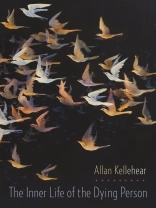This unique book recounts the experience of facing one’s death solely from the dying person’s point of view rather than from the perspective of caregivers, survivors, or rescuers. Such unmediated access challenges assumptions about the emotional and spiritual dimensions of dying, showing readers that—along with suffering, loss, anger, sadness, and fear—we can also feel courage, love, hope, reminiscence, transcendence, transformation, and even happiness as we die.
A work that is at once psychological, sociological, and philosophical, this book brings together testimonies of those dying from terminal illness, old age, sudden injury or trauma, acts of war, and the consequences of natural disasters and terrorism. It also includes statements from individuals who are on death row, in death camps, or planning suicide. Each form of dying addressed highlights an important set of emotions and narratives that often eclipses stereotypical renderings of dying and reflects the numerous contexts in which this journey can occur outside of hospitals, nursing homes, and hospices. Chapters focus on common emotional themes linked to dying, expanding and challenging them through first-person accounts and analyses of relevant academic and clinical literature in psycho-oncology, palliative care, gerontology, military history, anthropology, sociology, cultural and religious studies, poetry, and fiction. The result is an all-encompassing investigation into an experience that will eventually include us all and is more surprising and profound than anyone can imagine.
Table des matières
Preface
Acknowledgments
1. In the Beginning . . .
2. Suffering—Enduring the New Reality
3. Fear—a Threat Observed
4. Courage—Facing the Overwhelming
5. Resistance—Facing the Choices
6. Sadness and Anger—Facing Loss
7. Hope and Love—Connection
8. Waiting—In-between-ness
9. Review and Reminiscence—Remembering
10. Aloneness—Disconnection
11. Transformation—Change, Change, Change
12. Some Final Reflections
Notes
Bibliography
Index
A propos de l’auteur
Allan Kellehear is professor of community health at Middlesex University in London. His most recent books on dying include
A Social History of Dying and
The Study of Dying: From Autonomy to Transformation, an edited volume of essays.












